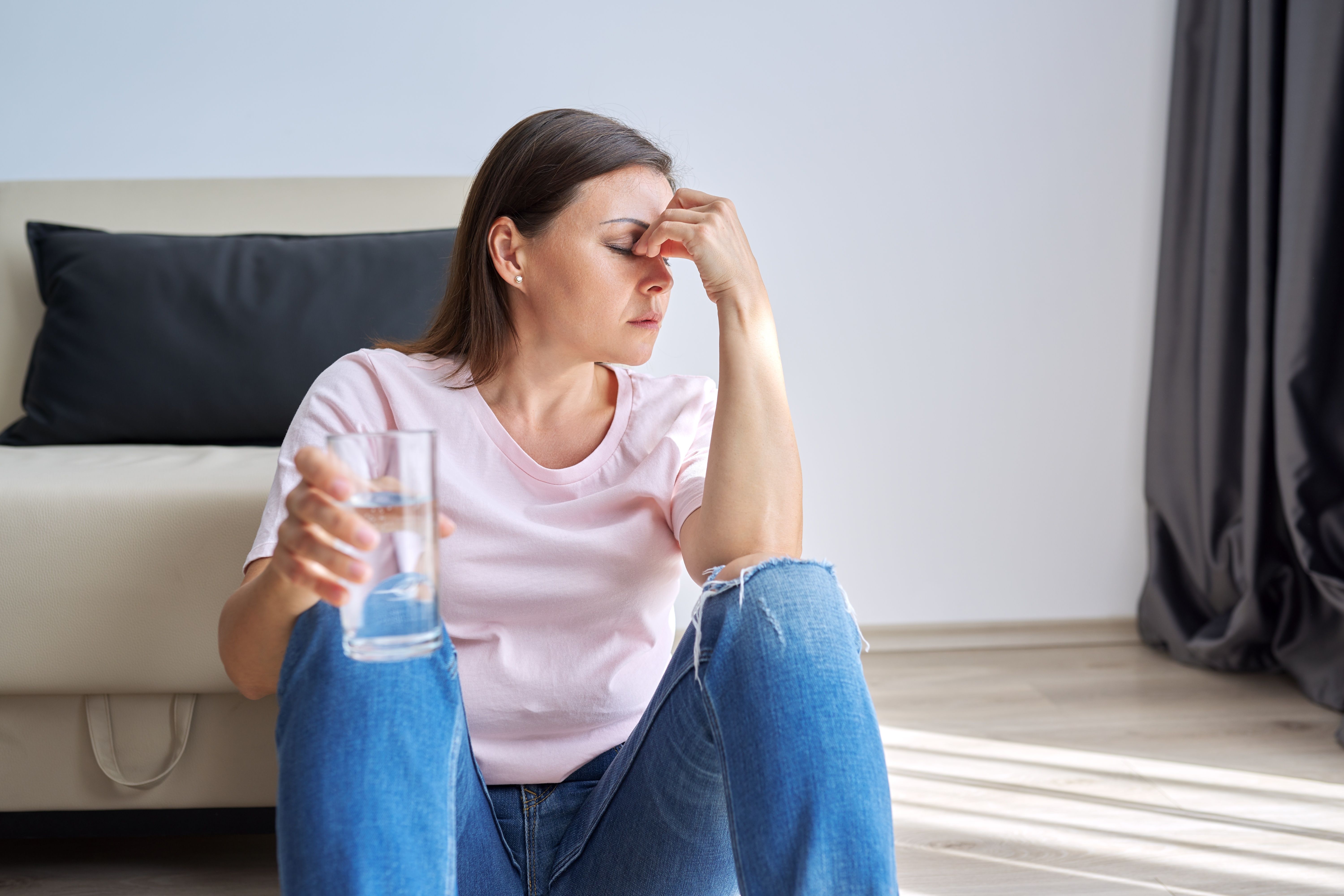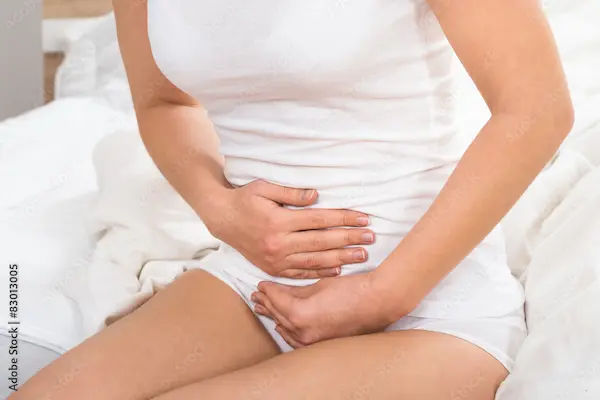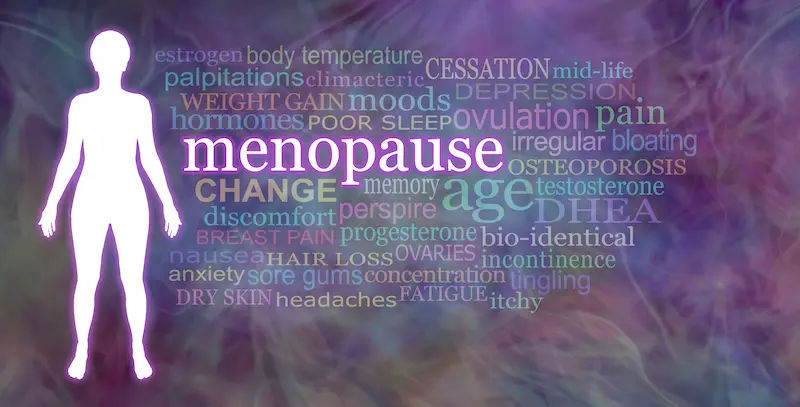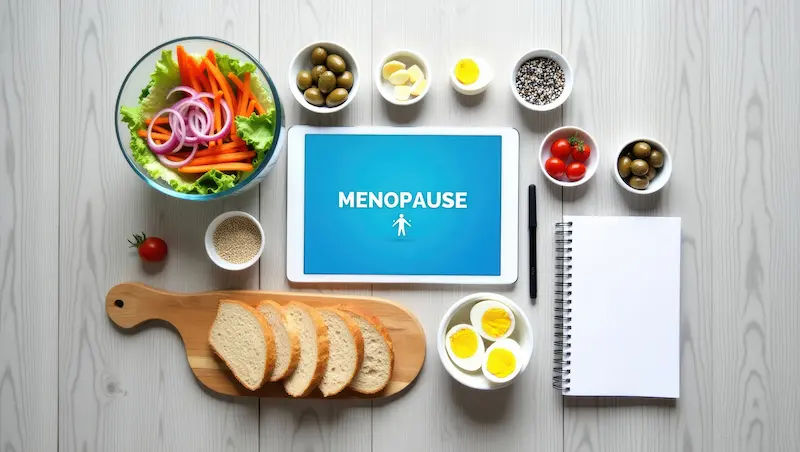Your Menopause Management Toolkit: A Guide to Modern Treatment Modalities
Discover effective modern treatment modalities for menopause, from hormone therapy to lifestyle changes, to help you manage symptoms and improve your quality of life.

Written by Dr. M L Ezhilarasan
Reviewed by Dr. Mohammed Kamran MBBS, FIDM
Last updated on 13th Jan, 2026

Introduction
Menopause is a natural biological event, but its symptoms can feel anything but natural. From disruptive hot flushes and sleepless nights to mood swings and brain fog, this transition can significantly impact your quality of life. The good news? You don't have to simply "grin and bear it." Today, a wide array of effective treatment modalities for menopause exists, empowering you to take control of your health and well-being. This guide moves beyond a one-size-fits-all approach, presenting these options as a customisable toolkit. Whether you're considering hormone therapy, exploring non-hormonal prescriptions, or seeking lifestyle adjustments, understanding the full spectrum of modalities to manage menopause is the first step toward crafting a personalised plan that works for you. We will explore the science, benefits, and considerations for each approach, helping you have an informed conversation with your healthcare provider.
Understanding the Menopause Transition: More Than Just Hot Flushes
Menopause is a significant life stage that involves much more than hot flushes, with wide-ranging physical, emotional, and cognitive changes.
Perimenopause: The Lead-Up to Menopause
Perimenopause often begins in a woman's 40s. During this phase, the ovaries gradually produce less oestrogen. This decline isn't steady; it can be erratic, leading to irregular periods and many of the symptoms commonly associated with menopause itself. Understanding that you are in perimenopause can help you make sense of the changes your body is undergoing and seek support early.
Common Symptoms Beyond Hot Flushes and Night Sweats
While hot flushes and night sweats (known as vasomotor symptoms) are the most famous hallmarks, the impact of declining oestrogen is widespread. Other common symptoms include:
- Vaginal and Urinary Changes: Vaginal dryness, itching, discomfort during intercourse, and increased urinary tract infections (collectively known as Genitourinary Syndrome of Menopause or GSM).
- Emotional and Cognitive Shifts: Mood swings, irritability, anxiety, difficulty concentrating ("brain fog"), and memory lapses.
- Physical Changes: Sleep disturbances, joint and muscle aches, changes in skin elasticity, and weight gain, particularly around the abdomen.
Recognising this full spectrum is crucial because different modalities target different symptoms. A treatment that is excellent for hot flushes may not address vaginal dryness, necessitating a combined approach.
Consult a Gynaecologist for the best advice
Hormone Therapy: A Cornerstone Modality for Menopause
Hormone Therapy (HT), formerly known as Hormone Replacement Therapy (HRT), remains one of the most effective treatments for menopause symptoms.
Systemic vs. Localised Hormone Therapy: What's the Difference?
- Systemic Hormone Therapy: This is delivered through pills, skin patches, gels, or sprays. It circulates throughout the bloodstream and is effective for treating overall symptoms like hot flushes, night sweats, and bone loss. If you have a uterus, progesterone (or a similar progestin) is always added to oestrogen to protect against uterine cancer.
- Localised Hormone Therapy: This includes low-dose vaginal creams, tablets, or rings. They deliver oestrogen directly to the vaginal tissue, minimising absorption into the bloodstream. This is a highly effective and safe option specifically for treating vaginal dryness and discomfort.
Weighing the Benefits and Risks of HRT
The decision to use HT is personal and should be made in partnership with your doctor, weighing your individual symptoms, health history, and risks.
- Benefits: Effectively reduces hot flushes/night sweats, prevents bone loss and fractures, treats GSM, and can improve mood and sleep for some women.
- Risks: Small increased risks of blood clots, stroke, and breast cancer with long-term use of systemic HT. However, for healthy women under 60 or within 10 years of menopause, the absolute risk is generally low. The key is individualised treatment; the risks and benefits look different for a 50-year-old versus a 70-year-old.
Who is an Ideal Candidate for Hormone Therapy?
HT is often a good option for women with moderate to severe vasomotor symptoms who are otherwise in good health. It may not be recommended for women with a personal history of breast cancer, heart disease, blood clots, or liver disease. If you are considering HRT, consult a doctor online with Apollo24|7 to discuss your suitability based on your complete medical profile.
Non-Hormonal Prescription Medications for Symptom Relief
There are several effective prescription treatments for women who cannot or choose not to use hormones.
Managing Vasomotor Symptoms (Hot Flushes) Without Hormones
Certain antidepressants, like low-dose SSRIs (e.g., paroxetine) or SNRIs (e.g., venlafaxine), are approved to reduce the frequency and severity of hot flushes. Another option is the anti-seizure medication gabapentin. These non-hormonal treatments for menopause can be excellent alternatives, though they may come with their own side effects, such as nausea or drowsiness.
Addressing Mood Changes and Sleep Disturbances
If mood swings, anxiety, or depression are primary concerns, a fuller-dose antidepressant may be prescribed. For sleep issues that are not resolved by improving sleep hygiene, a doctor might recommend a short-term sleep aid. Medications like ospemifene can also be prescribed specifically for painful intercourse due to vaginal atrophy.
Lifestyle Modalities: Your Foundation for Menopause Wellness
Lifestyle adjustments are essential for supporting long-term health and easing menopause symptoms naturally.
Nutritional Strategies to Support Your Body
- Calcium and Vitamin D: Essential for bone health. Aim for 1,200 mg of calcium and 600-800 IU of
- Vitamin D daily through diet and/or supplements. Apollo24|7 offers convenient home collection for tests like vitamin D to check your levels.
- Phytoestrogens: Found in soy, flaxseeds, and legumes, these plant-based compounds have weak oestrogen-like effects that may help mild hot flushes for some women.
- Avoid Triggers: Spicy foods, caffeine, and alcohol are common triggers for hot flushes.
The Power of Movement: Exercise for Body and Mind
Regular exercise is a powerhouse. It helps manage weight, strengthens bones (weight-bearing exercises like walking and strength training), reduces stress, and improves sleep. Aim for a mix of cardio, strength, and flexibility exercises like yoga, which can also be a fantastic mind-body practice for menopause symptoms.
Stress Reduction and Sleep Hygiene Techniques
Chronic stress exacerbates symptoms. Practices like meditation, deep breathing exercises, and mindfulness can lower stress hormones and improve emotional resilience. For better sleep, establish a consistent routine, keep your bedroom cool, and avoid screens before bed.
Complementary and Alternative Medicine (CAM) Approaches
Some women turn to complementary therapies, but it’s important to evaluate them carefully and seek medical advice before use.
Herbal Remedies and Supplements: What Does the Science Say?
- Black Cohosh: Some studies show it can reduce hot flushes, but results are mixed. Choose a reputable brand and be aware of potential liver effects.
- Others: Evening primrose oil, red clover, and maca root are popular, but scientific evidence for their effectiveness is limited and inconsistent. Supplements are not regulated like drugs, so quality and purity can vary.
Mind-Body Practices: Acupuncture, Yoga, and Meditation
Research suggests that acupuncture may provide modest relief from hot flushes for some women. Yoga and tai chi are excellent for improving flexibility, balance, and mental well-being, making them valuable components of a holistic management plan.
Creating Your Personalised Menopause Management Plan
Developing a tailored menopause management plan often requires combining different treatments and approaches.
The most effective approach to menopause is rarely a single modality but a combination tailored to your unique needs. Your plan might include:
- Localised oestrogen for vaginal health.
- A regular yoga practice and nutritional adjustments for overall wellness and mild hot flushes.
- A low-dose SSRI if vasomotor symptoms and mood swings are significant.
Your journey is unique. If your symptoms are disrupting your life, book a physical visit to a doctor with Apollo24|7 to create a comprehensive and personalised management strategy.
Conclusion
Navigating menopause successfully is about empowerment and information. By understanding the wide range of treatment modalities for menopause—from medical interventions like hormone therapy to foundational lifestyle changes—you can move from a place of frustration to one of proactive control. Remember, the goal is to find the right balance that allows you to thrive during this phase of life. This journey is deeply personal, and what works for one woman may not work for another. Stay curious, be patient with yourself, and maintain an open dialogue with your healthcare provider. If your condition does not improve after trying these methods, consulting a specialist can provide further evaluation and tailored options. Embrace this transition as an opportunity to prioritise your well-being and create a vibrant, healthy future.
Consult a Gynaecologist for the best advice
Consult a Gynaecologist for the best advice

Dr. Damayanti Pentiyala
Obstetrician and Gynaecologist
27 Years • MBBS, MD
Khammam
Kinnera Hospital, Khammam
(275+ Patients)
Dr. K Anusha
Obstetrician and Gynaecologist
4 Years • MBBS, DGO
Yemmiganur
SRINIVASAA HOSPITAL, Yemmiganur

Dr. Abhishek Daga
Obstetrician and Gynaecologist
20 Years • MBBS, MS (Obstetrics & Gynaecology)
Kolkata
Gynae Care Fertility Centre, Kolkata
(150+ Patients)

Dr. Sanchita Dube
Obstetrician and Gynaecologist
17 Years • MBBS, MD, DNB
Noida
Apollo Hospitals Sector 26, Noida
(100+ Patients)

Dr. Karuna Ratwani
Obstetrician and Gynaecologist
11 Years • MBBS, MS( Obstetrics & Gynaecology), F.MAS, FICRS Advanced Diploma in Minimal Access surgery Fellow of International College of Robotic Surgeons Diploma in Reproductive Medicine, Kiel-Germany Masters in Cosmetic Gynaecology , Greifswald-Germany Masterclass in Obstetrics & Gynaecology Ultrasound ( ISUOG, UK)
Delhi
Apollo Hospitals Indraprastha, Delhi
Consult a Gynaecologist for the best advice

Dr. Damayanti Pentiyala
Obstetrician and Gynaecologist
27 Years • MBBS, MD
Khammam
Kinnera Hospital, Khammam
(275+ Patients)
Dr. K Anusha
Obstetrician and Gynaecologist
4 Years • MBBS, DGO
Yemmiganur
SRINIVASAA HOSPITAL, Yemmiganur

Dr. Abhishek Daga
Obstetrician and Gynaecologist
20 Years • MBBS, MS (Obstetrics & Gynaecology)
Kolkata
Gynae Care Fertility Centre, Kolkata
(150+ Patients)

Dr. Sanchita Dube
Obstetrician and Gynaecologist
17 Years • MBBS, MD, DNB
Noida
Apollo Hospitals Sector 26, Noida
(100+ Patients)

Dr. Karuna Ratwani
Obstetrician and Gynaecologist
11 Years • MBBS, MS( Obstetrics & Gynaecology), F.MAS, FICRS Advanced Diploma in Minimal Access surgery Fellow of International College of Robotic Surgeons Diploma in Reproductive Medicine, Kiel-Germany Masters in Cosmetic Gynaecology , Greifswald-Germany Masterclass in Obstetrics & Gynaecology Ultrasound ( ISUOG, UK)
Delhi
Apollo Hospitals Indraprastha, Delhi
More articles from Menopause
Frequently Asked Questions
What is the safest non hormonal treatment for menopause mood swings?
Lifestyle approaches are often the safest first step. Regular aerobic exercise, mindfulness meditation, and cognitive-behavioral therapy (CBT) have strong evidence for improving mood and reducing anxiety during menopause. If these are insufficient, certain antidepressants (SSRIs/SNRIs) can be very effective and are considered a safe non-hormonal prescription option.
Are bioidentical hormones safer than traditional HRT?
'Bioidentical' is a marketing term, not a scientific one. These hormones are chemically identical to those your body produces. However, custom-compounded bioidentical hormones are not regulated by the FDA for safety and efficacy, unlike FDA-approved HT products. The 'safety' depends more on the dose, delivery method, and your health profile than on whether the hormone is labeled 'bioidentical.'
How long should a woman typically take hormone therapy?
There is no universal time limit. The duration depends on the reason for use and your personal risk profile. For symptom relief, it's generally recommended to use the lowest effective dose for the shortest time needed (e.g., 3-5 years), but treatment can be longer for women at significant risk for osteoporosis, with ongoing reevaluation of risks and benefits.
Can lifestyle changes alone be enough to manage menopause?
For women with mild symptoms, yes. A commitment to a healthy diet, regular weight-bearing and cardio exercise, stress reduction, and good sleep hygiene can significantly alleviate symptoms and improve overall quality of life. However, for moderate to severe symptoms, these changes work best in combination with other medical modalities.
When should I see a doctor about my perimenopause symptoms?
You should consult a doctor when your symptoms begin to interfere with your daily life, sleep, or mood. It's also a good idea to have a proactive conversation in your mid-40s to establish a baseline and discuss what to expect. You can easily consult a doctor online with Apollo24|7 to discuss your symptoms and management options from the comfort of your home.




